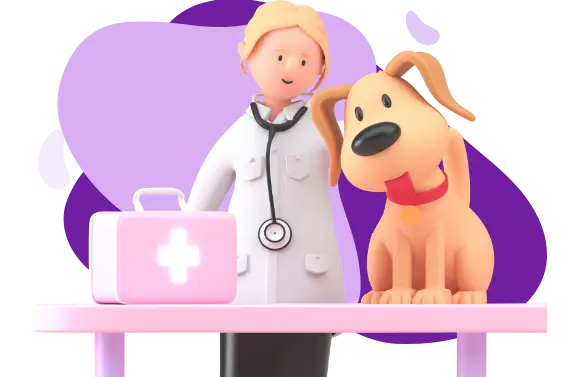Whether you are a student seeking knowledge about animal surgeries or a pet owner concerned about your pet surgeries, you can find well-researched data at Vet and Tech.
Here, you can get detailed information about pre-and post-surgical care for your pet, including risks, prevention, and other factors. You can also browse the categories to find a specific veterinary procedure. For example, you can search according to surgery type, like ear surgery, eye surgery, etc.
Explore The Page to Get Insights into Different Veterinary Surgical Procedures!
Surgical Categories
How To Keep Pets Happy & Healthy With Surgical Procedures?
The happiness and well-being of our beloved pets are of paramount importance. As pet owners, we strive to provide the best possible care, even during difficult times like surgery. While the thought of surgery can be unsettling for our furry friends, we can take steps to ensure their happiness and well-being throughout the process.
This blog share practical and compassionate ways to ensure your pet's happiness and well-being during surgery. From preparing for surgery to proper post-operative care, we'll look at critical strategies to promote recovery and overall well-being.
Elective Procedures
These procedures are not urgently required but are beneficial for pet patients. They ensure a healthy lifestyle and, above all, it prevents potential infections and diseases.
Some of the most common elective procedures are as follows:
- Dental extractions
- Spay surgery
- Neuter surgery
- Benign skin growths
Now let us take a look at some of the emergency care procedures:
- A skin wound or pus
- Internal bleeding
- Malignant tumor
- Intestinal disorders
- Bone fracture
- Skin cancer
Blockage of vital organs like heart, liver, kidney, and spleen
Therefore, it is essential to note that after careful and thorough analysis, the veterinary surgeon gives their final verdict of pursuing either the elective or the emergency operational procedure after detailed and thorough analysis. All they want is a healthy and active lifestyle for their pets.
Risk Is Associated With Pet Surgeries
We all know that there is a price for everything. But, the benefits outweigh their disadvantages when it comes to veterinary surgeries and procedures. No doubt, extra care and affection are required pre-and post-surgical procedures. But it is worth it. However, the veterinary operational procedures have little to no risk associated with the procedure, recovery, and healing process. Therefore, there is no need to panic when your veterinarian suggests a surgical procedure for your pets.
How To Deliver Top-Notch Care To The Pet-Patients?
Before proceeding with the final decision of the surgery following crucial information must always be considered:
- Evaluation of the pros and cons of the specific surgical procedure.
- Review the pet's medical history.
- Through physical examination of the pet patient.
- Complete blood test report to check if the platelets are sufficient for clotting.
- Hematocrit test to find out if the pet patient is anemic.
- Urine Specific Gravity (USG) test evaluates the kidneys' proper functioning and urine concentration.
- Blood Urea Test (BUT) to determine the kidney's health condition.
- Determination of the appropriate amount and dosage of anesthesia for the pet patients.
- Ensure proper sterilization of the room to prevent cross-infection and contamination.
- Use hand gloves, sterile gowns, and masks before entering the operation theatre.
- Use sterilized and well-packed surgical instruments before starting the veterinary procedure.
Important Discussion To Conduct With The Pet-Owner
It is essential to brief the pet owner about the possible complications associated with the operational procedure. The following factors are crucial when it comes to cats and dogs surgery:
- To properly check the past health record of the pet
- Age and gender of the animal
- Potential threats after the surgery
- Recovery possibilities after surgery
- Healing time and physical therapy duration
Therefore, the primary purpose of the veterinarian is to give transparent and accurate information to the pet parents regarding the operational procedure. Everything should be explained clearly to them so they can make an informed decision regarding the wellness of their furry pal.
Pets Pre-Surgical Instructions
Surgery aims to provide the utmost care and protection to pet patients. However, you must follow general guidelines before initiating the planned or emergency operational procedure.
- Strictly follow the recommended drinking and feeding routine by the doctor.
- Do not feed your pets before the working day.
- The pet is allowed to drink only until the morning of the surgery.
- Try your best to reach on time because any delay can cost both the pet's life and the doctor's time.
- Vigilantly follow all the instructions provided by the surgeon. In case of any issue, immediately call the hospital regarding the pre-surgical care for your pets.
Therefore, follow the doctor's recommended guidelines if you want to see your pet happy and active.
Pets Anesthesia
As stated earlier, compassionate companions cannot share their pain and suffering. Therefore, it is essential to relax their body and muscles before starting the surgical procedure. For example, morphine acts as a sedative and analgesic as well. However, the doctor decides the sedative dosage considering the pet patient's medical history, age, and gender.
Therefore, the following things are important to consider when your pet is given anesthesia:
- It is ok for your pet to feel dizzy and numb for 2-3 hours after the anesthesia injection.
- They may even sleep for more than 24 hours after receiving the anesthesia.
- They might not be fully active and respond after the anesthesia, which is normal.
- Your pet might need extra care and support in the initial hours right after the surgery to maintain balance.
Post-Surgical Care For Pets
Most of the time, pet owners need to be more active regarding post-surgical care and the recovery of their patients. This puts extra pressure on the medical staff and undermines the success rates of surgical procedures. Therefore, it is very important to look after your pets after the surgical procedure in the following ways:
- Keep a vital check on timings in case you have to leave urgently. Therefore, remember to pick up your furry buddy on time.
- During routine checkups, pets can quickly return home after waking from anesthesia.
- Veterinarians might keep the pet patients under observation for 24 hours or even much longer in emergency procedures.
Post-Surgical Follow-Up Procedures
- Proper administration of food, water, and medication.
- Careful and regular changing of bandages.
- Prevention of infection of stitches.
- Professional medical care tips.
- Bring your pet regularly to scheduled appointments.
- Provide a cozy and quiet place for your pet's healing.
- Avoid indulging your pets in strenuous activities.
- Try to provide the pets with the utmost care and comfort after major surgery.
- Monitor your pet's behavior for the first 24 hours after the operational procedure.
- Assist your pets during feeding and bathroom breaks.
- Closely monitor and maintain the stitches to avoid spreading any potential infection.
- Immediately consult your veterinarian in case of inflammation or swelling of the incision.
- Religiously follow your pet's healing program until the surgeon recommends discontinuing or altering it.
In a nutshell, veterinary issues can pop up at any age and time with your pets. So, if you are looking for compassionate care for your fur babies, visiting a veterinarian is necessary. Their main aim is to keep your pets on the path to wellness. Hence, read this informational blog the next time you decide to pursue veterinary surgery.


